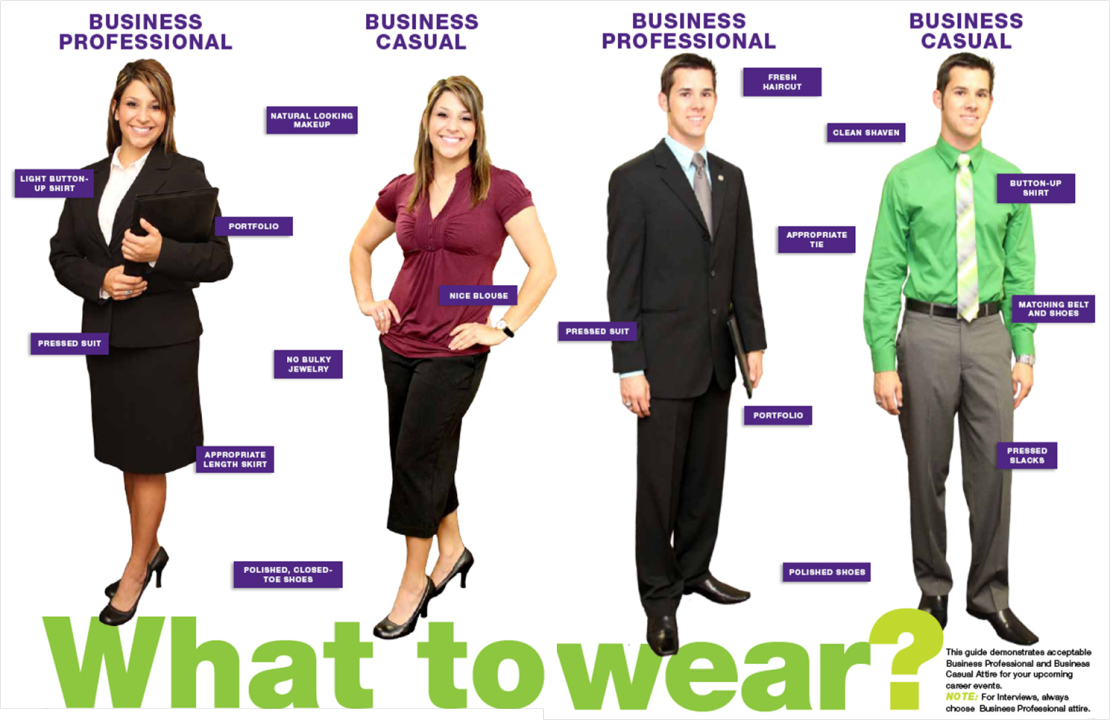
What is the appropriate dress code for the interview?
Dressing appropriately for an interview is crucial as it helps create a positive first impression and demonstrates professionalism. Here are some guidelines to consider when choosing your interview attire:
- Research the Company Culture: Before the interview, research the company's dress code and culture. This information can usually be found on the company's website or social media profiles. Aim to dress slightly more formal than their everyday attire to show respect and professionalism.
- Dress Professionally: Unless specifically instructed otherwise, it's generally recommended to wear professional attire for interviews. For men, this typically means a suit (matching pants and jacket) in a conservative color such as navy, gray, or black. Pair it with a dress shirt, tie, and polished dress shoes. Women can opt for a suit with pants or a skirt, or a professional dress or blouse with a skirt or tailored pants. Choose neutral or subdued colors and avoid excessive patterns or flashy accessories.
- Dress for the Industry: The appropriate attire may vary depending on the industry and the position you are applying for. While formal attire is suitable for most interviews, certain industries, such as finance or law, may require a more conservative and traditional approach. On the other hand, creative industries or startups may have a more casual dress code, allowing for a slightly more relaxed yet polished appearance.
- Pay Attention to Grooming: In addition to the clothes you wear, pay attention to your overall grooming. Ensure your hair is neat and well-groomed, and avoid excessive hairstyles or colors that could be distracting. Keep facial hair neatly trimmed and consider removing visible piercings or toning down makeup if it aligns with the company culture. Maintaining good personal hygiene is also essential.
- Avoid Distractions and Inappropriate Attire: It's important to dress in a way that allows the interviewer to focus on your qualifications and abilities rather than your outfit. Avoid overly casual clothing, such as jeans, t-shirts, or sneakers. Minimize distractions by choosing simple and conservative clothing without excessive accessories, loud patterns, or bold colors. Dressing too provocatively or wearing clothing with offensive or controversial messages should be avoided at all costs.
- Prepare in Advance: Lay out your interview outfit the night before to ensure it is clean, pressed, and in good condition. This will save you time and help you avoid any last-minute wardrobe malfunctions. Plan for different weather conditions and have a suitable coat or jacket if needed.
Remember, dressing professionally for an interview shows respect for the opportunity and helps create a positive first impression. When in doubt, it's better to be slightly overdressed than underdressed.
#InterviewAttire #ProfessionalDress #InterviewFashion #DressForSuccess
#JobInterviewStyle #CorporateFashion #InterviewOutfit #BusinessAttire #SuitUp #PowerDressing #JobReady #ProfessionalImage #InterviewPreparation #DressedToImpress #JobSeekerStyle